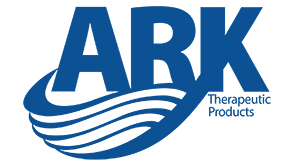Which Products Are Recommended for Apraxia?
Posted by Debra C. Lowsky, MS, CCC-SLP on 21st May 2018
Question: My son hasn’t officially been diagnosed yet, but his doctor thinks he has Apraxia. I'm not really getting a lot of guidance on tools to help my son so I'm trying to do some research on my own. Can your products help with Apraxia?
I know all about doing my own research! It's good that you're looking in to this. Yes, our products can help with certain aspects of Apraxia. Firstly, I would recommend working on oral awareness with him. He needs to know where his tongue is in time and space, and the Z-Vibe can be helpful there. For more information on using the Z-Vibe to increase oral awareness and "wake up" the mouth so to speak, click here.
The Z-Vibe can also be helpful for teaching the concept of turning the voice on/off (phonation). You can turn the Z-Vibe off and on with him and explain that that’s essentially what he needs to do with his voice too - turn it off or on for different sounds. “See, it’s buzzing - that’s what you need to do with your voice too, make it buzz." For more information on turning your voice on/off, click here.
.

.
For speech sound production, I often use the Z-Vibe or Probe to provide tactile cues (to physically touch the articulators to show them where they need to go). Each speech sound requires different placements of the tongue, lips, and jaw. Some sounds are made with the tip of the tongue (T, D, N, L), others with the back of the tongue (K, G, Y). Some sounds are made with the lips closed, open, extended, retracted, or rounded. Different vowels are pronounced with the jaw at different heights. I use verbal instructions and visual pictures, too, but sometimes seeing and hearing is not enough - some kids need to feel it too. The sense of touch provides a lot more information, and that's where the Z-Vibe or Probe comes into play.
Most importantly, though, I'd highly recommend finding a speech language pathologist (SLP, speech therapist) who can evaluate his needs and guide you through everything. Apraxia can be complex. It requires the organization of several different systems (respiration, phonation, resonation, articulation) as well as motor planning. There's a lot involved, so a professional evaluation with a speech therapist will be important.
As a heads up - not all therapists will necessarily use our products for working on Apraxia. It’s definitely not required, although I do find them helpful for the above mentioned points.
An evaluation with an OT (occupational therapist) is probably also a very good idea. He/she will be able to check his gross motor skills, fine motor skills, and motor planning throughout the rest of his body too.
Last but not least, I highly recommended Pam Marshalla’s book “Apraxia Uncovered” AND make sure you get the accompanying CD for it too - it’s very helpful.
Debbie
Debra C. Lowsky, MS, CCC-SLP
.

